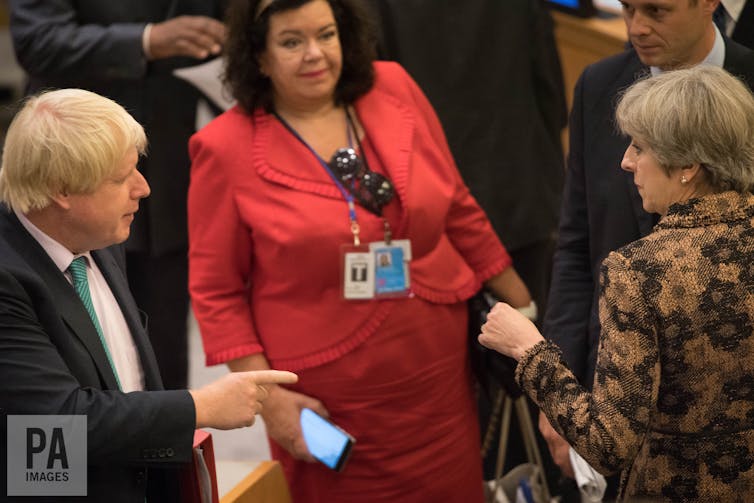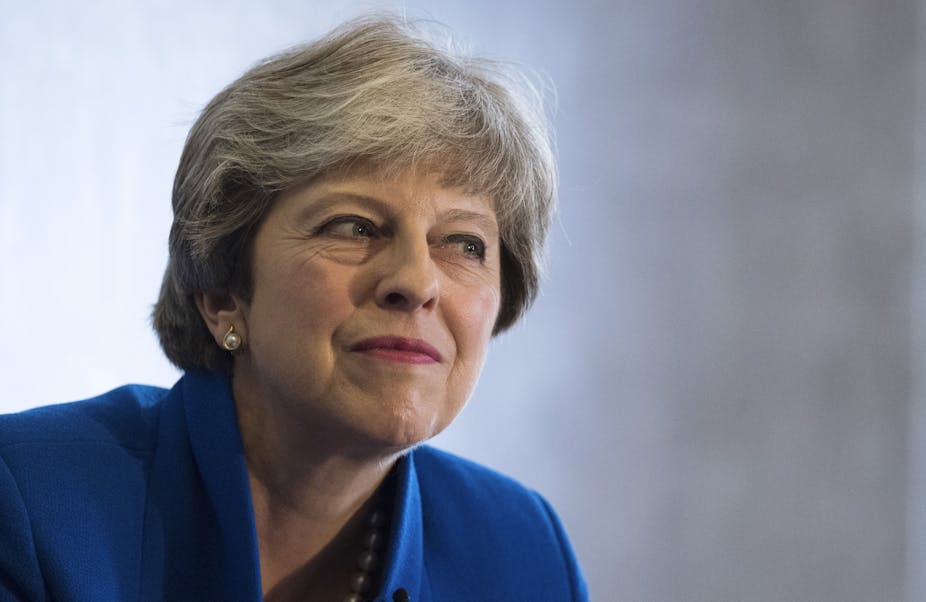Exsanguination: defined by the online Free Dictionary as “extensive blood loss due to internal or external haemorrhage”. As a metaphor for political demise it is not quite so popular as “defenestrate” or “decapitate” but in the case of Theresa May and the Conservative party, it works.
For as they gather in Manchester for their annual conference, the prime minister and her party are in deep trouble. The cause of this is not the blunt force trauma of an electoral defeat, a cabinet rebellion, or a leadership challenge – at least not just yet. No, this is a slower process but it is all the more insidious and deadly for that. This is more like death by a thousand cuts.
The symptoms of the Conservative crisis are not hard to spot. The fallout of May’s catastrophic decision to call an unnecessary general election and then fight a poor campaign with a manifesto that failed the retail politics test has spooked the Tories and emboldened Labour.
A year ago the Tories, under their new leader, looked confident. Now it’s Labour looking towards the coming years with confidence. Rather than cauterising the European wound in the Tory body politic, Brexit – and particularly the government’s inept handling of it – has now taken on an existential quality. It presents a potentially terminal threat to the governing credentials of the Conservative party, the hard-won reputation of the UK as a respected international actor, the long-term prospects of the British economy and the efficacy of parliamentary democracy itself.
But without re-opening the arguments about Brexit, there are three things that May and her closest allies need to address.
Discipline and modernisation
The first, which is easier said than done in May’s weakened state, is to impose discipline on her cabinet. Guy Verhofstat, the European Parliament’s Brexit spokesman, recently teased the prime minister by comparing the politics of the Tory party to 15th century Florence. He hit the mark but also demonstrated how internal Tory politics threaten to make the UK a laughing stock. This has to stop. Boris Johnson may or may not have broken the ministerial code of practice when he hosted the launch of the pro-Hard Brexit Institute for Free Trade in the Map Room of the Foreign Office, but was certainly a challenge to the prime minister’s authority. Johnson is coming for her anyway, so May needs to get her retaliation in first and sack him. She might be surprised how the party reacts.

Task two: reform the stale structures of the Conservative party, including its moribund conference. Comparisons with the vibrancy of the Corbyn love-in at Brighton will be made this coming week and it’s safe to say that it won’t be to the benefit of the Tory party. Conference sets may have got slicker and delegates’ lapels may have got smaller but the visual impact of the Tory conference has not changed that much since a teenage William Hague addressed delegates back in the 1970s.
The overall retro feel has been further enhanced recently by the Tories’ new status as the party of choice for older, poorer, less well educated, Brexit voters. These good people have many qualities but they do not represent the future. The Tories need to find a way to steal some of Momentum’s playbook without embarrassing themselves and they need an injection of fresh blood fast. From that, as the experience of Labour over the past couple of years attests, fresh ideas and impetus will surely follow.
A people’s capitalism
Finally, the Tories need to re-articulate the core tenet of their belief system: faith in a dynamic and well-regulated market economy and the benefits that can generate for all. In the final years of the Eastern Bloc, when belief in the future of Soviet-style communism had all but disappeared, communist leaders would refer to their system as “real existing socialism”. This term was particularly popular with the East German regime and seemed imply that yes, the system was broken, but no, woe betide if anyone should entertain thoughts of changing it.
A quarter of a century after the fall of the Berlin Wall and a decade after the start of the global financial crisis, we seem to be in an era of “real existing capitalism”. And like with its predecessor, people are looking for an alternative. At the Labour conference, the shadow chancellor, John McDonnell, set out one such alternative – a return to the kind of public ownership model that the Tories thought they had cast into the dustbin of history. Even Trevor Kavanagh, the political editor of The Sun, argues that it is understandable for commuters who have to put up with the privatised Southern Rail to want to renationalise the railways.
The Tories need to make their case anew for a people’s capitalism. May’s attempt in her recent speech at the Bank of England was a start, but if the Tories cannot make a stronger case than that, then they are finished and the future belongs to Momentum.

